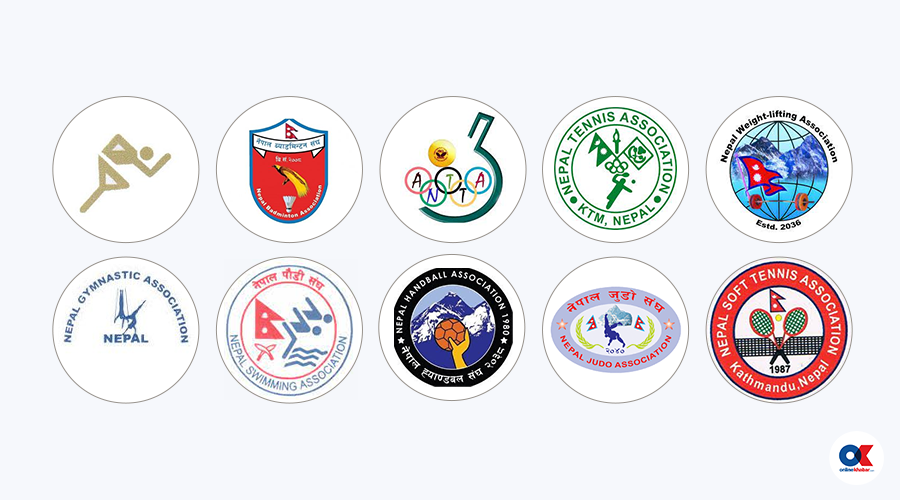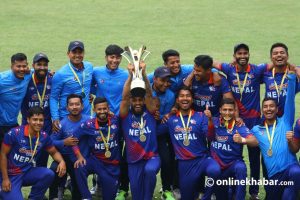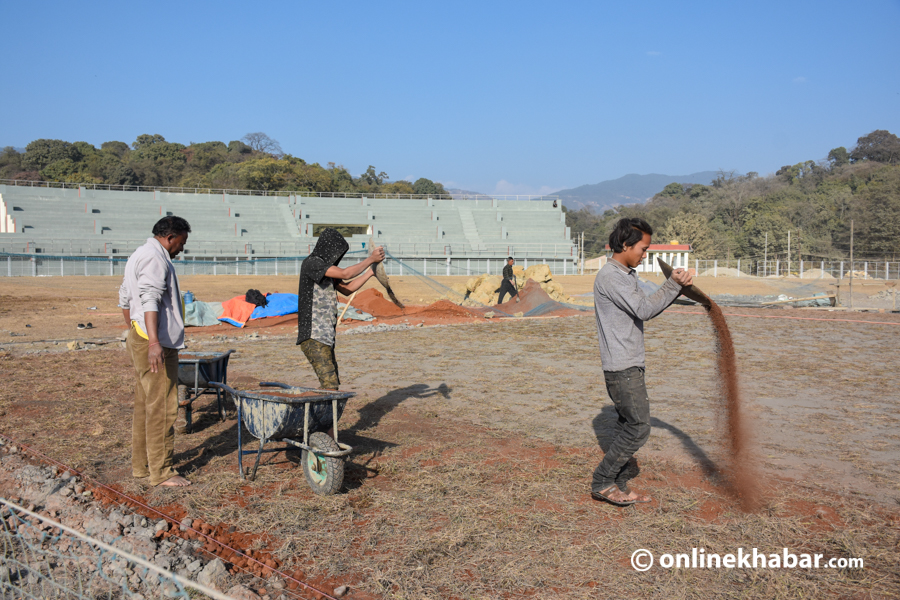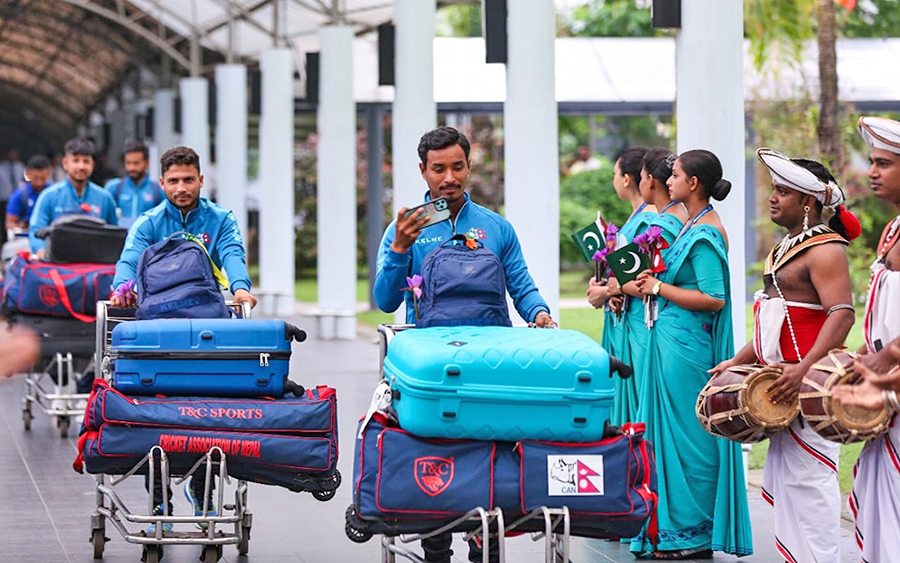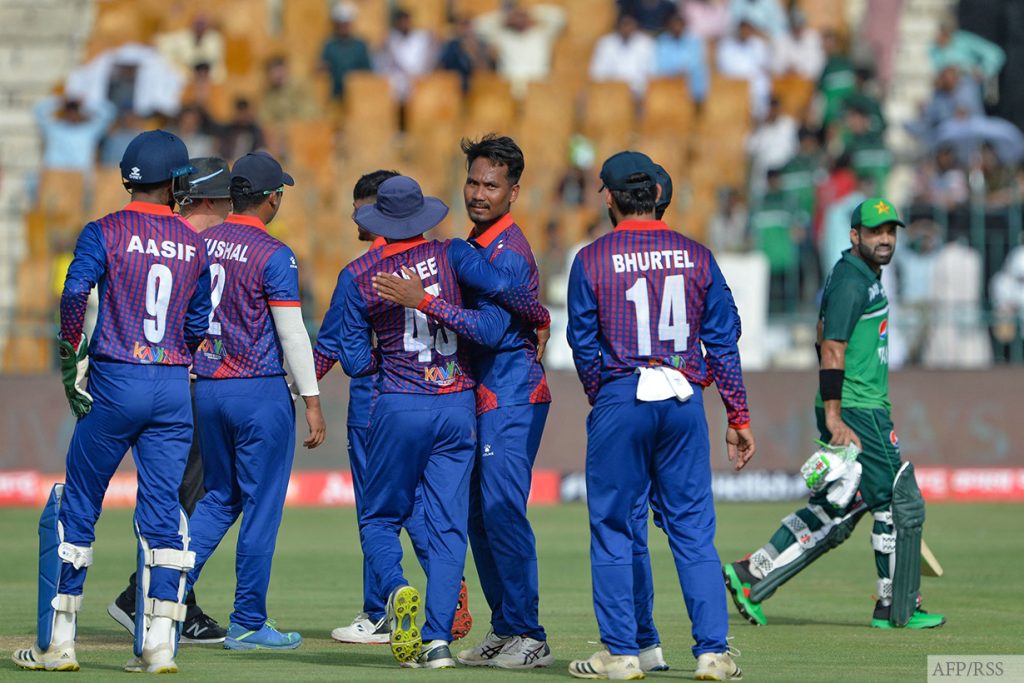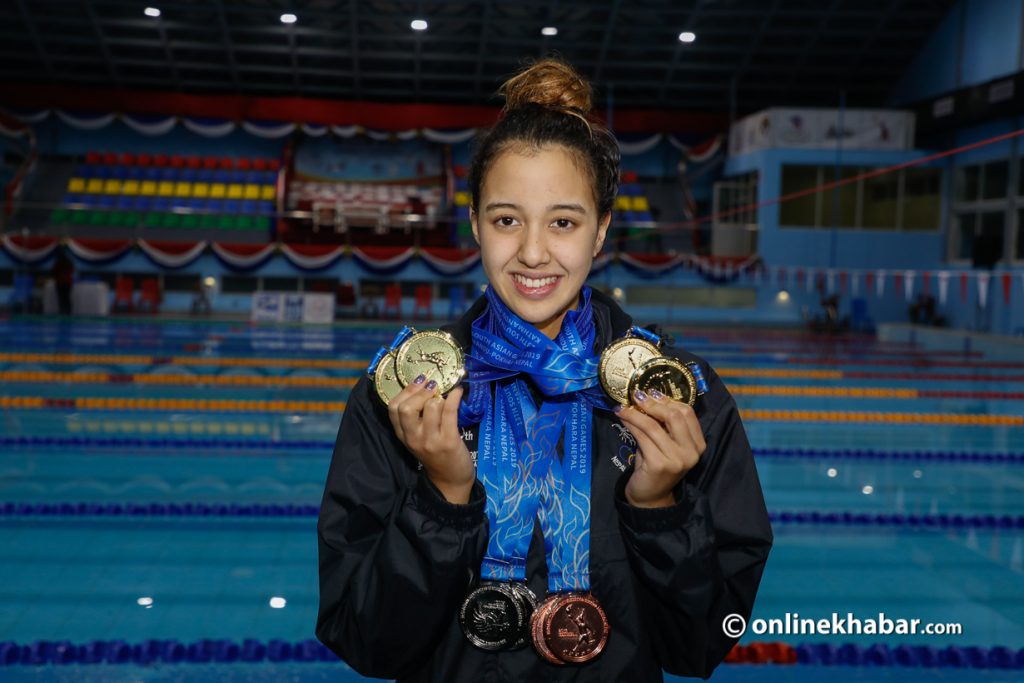
Bhupen Shrestha was only 19 when he won a gold medal during the 13th South Asian Games (SAG) in 2019. Shrestha, who was physically strong and technically agile, was seen as the future of taekwondo in Nepal.
There were valid reasons for people to be hopeful as he had won a gold medal in just two years of training. He was taekwondo’s golden boy and many had hoped he would make the country proud. But a little over four months ago, Shrestha decided to leave his gold medal behind and fly to Australia looking for a better future.
“I thought I’d get more exposure and better facilities after I won an international gold. But contrary to that, I didn’t even receive regular training. The (Nepal Taekwondo) Association didn’t treat me like an international athlete,” says Shrestha.
This is not just the case for Shrestha. Out of the 34 players of taekwondo in Nepal who won medals at the 13th South Asian Games in 2019 December, 13 have left the country for a better future abroad.
This shows how terrible the state of taekwondo in Nepal is as many promising players who have done well and won medals in international tournaments have left the country after not seeing a future in the sport.
The cost of officials’ tussle

Many say the situation is going to get worse as the officials associated with taekwondo in Nepal are currently in an internal tussle, which has caused uncertainty for those who have dedicated their lives to the sport.
What has not helped is the move by the National Sports Council (NSC) that scraped the Nepal Taekwondo Association and formed the Nepal Taekwondo Federation two weeks ago.
Bitterness started between the Olympic-recognised Nepal Taekwondo Association and NSC in September 2021. Nepal Taekwondo Association has not been happy with the NSC’s leadership when it formed another association called the Taekwondo Union in 2011. Things got worse between the two when the Nepal Taekwondo Association went ahead with its annual general meeting and elections in spite of the NSC asking it not to.
The association held a general meeting in Bhairahawa on September 30, 2021. Three days before that, the NSC had instructed to postpone the election because it did not approve the association’s revised constitution.
Nepal Taekwondo Association did not stop the general meeting saying that the election process had started after dissolving the working committee, and a new working committee was elected with Prakash Shamsher Rana as the president. But the NSC did not recognise the new working committee led by Rana.
This controversy flared up when competitions started to be conducted for the development of taekwondo in Nepal. Aiming at the upcoming Asian Games, the NSC directed the head coach Naveen Kumar Shrestha to start the training of the national team in October 2021. But the working committee led by Rana did not allow the chief coach Shrestha to train according to the NSC’s plan.
Instead, without coordinating with the head coach and trainer, they formed a national team preparation sub-committee under the leadership of Ram Giri and organised the 17th National Taekwondo Tournament on April 1 and 2, 2022. This meant the training of the national team of taekwondo in Nepal could not start.
The NSC then held a two-month closed camp from May 2022 for the Asian Games. In the camp, the NSC called players who won medals in the 2019 SAG and those who had performed in national-level taekwondo tournaments.
Asian Games was postponed to September 2023 and the closed camp was halted for the time being.
The 113th board meeting of the NSC held in July 2022 decided to form a committee under the leadership of its vice-chairperson Shiva Koirala. The aim of the committee was to solve issues related to sports associations.
Interestingly, Koirala is also the president of the National Taekwondo Union. This is the same union that was registered by the National Sports Council, which caused controversy in taekwondo in Nepal.
Nepal Taekwondo Association did not accept Koirala as the coordinator of the dispute resolution committee. According to the committee, the leadership of the Nepal Taekwondo Association did not come to the discussion despite being called for several times. The committee hence recommended the cancellation of the registration. On December 10, 2022, Sports Minister Maheshwar Jung Gahatraj endorsed the recommendation of the committee.
According to the instructions of the minister, the NOC revoked the registration of both the Nepal Taekwondo Association and the National Taekwondo Association on December 20, 2022. Then, it registered the Nepal Taekwondo Federation with Pradeep Joshi as the coordinator and Indraman Tuladhar as the general secretary.
Joshi is the former vice president of the Nepal Taekwondo Association and Tuladhar is the former general secretary of the All Nepal Football Association (ANFA).
After cancelling their association and forming another one, the Rana-led association went to court and the Patan High Court gave an interim order. On January 4, the Ministry of Youth and Sports, the NSC and others were called for discussion.
As this dispute in taekwondo in Nepal seems never-ending, the ones to feel the brunt are the players. This has resulted in many leaving Nepal and going abroad.
From light to darkness

Taekwondo, karate and other sports started in Nepal in 1982 when martial arts was recognised as a sport in the country. Taekwondo, registered at NSC in 1989, then became a sport that brought Nepal the most success on the international stage.
In the 13th SAG held in Nepal in 2019, taekwondo won the most medals (12 gold, 6 silver and 11 bronze medals). Taekwondo was the only sport in the 13th SAG in which all 34 athletes representing Nepal won medals.
But the key players winning medals for taekwondo in Nepal are in abroad now. The list includes Bhupen Shrestha, Parwati Gurung, Sanjila Timalsina, Sangeeta Basyal and Saksham Karki who won the gold; Neema Gurung and Apsara Karki who won the silver; and Manoj Malla, Gyanendra Hamal and Nischal Man Shrestha who won the bronze medals.
Similarly, Krishna Bahadur Tamang and Kiran Bahadur Ale who went to South Korea to take part in competitions representing taekwondo in Nepal have not been in contact with Nepal Taekwondo Association since then. Both won silver medals at the 2019 SAG.
Manita Shahi, who won a silver in the 13th SAG, left for the US a while back. Double gold winner Ayesha Shakya and gold winner Seena Maden, who are still in Nepal, have decided not to be involved in taekwondo. They chose not to take part in the 9th National Games held in Pokhara.
“This happens when the associations don’t care about the players. They did what they thought was right because competitions stopped happening regularly when they were at the peak of their careers,” says Deepak Bista, the most successful player of taekwondo in Nepal.
Loss of hopes
Players quitting taekwondo and leaving Nepal have put an end to all hopes that Nepal might do well in international tournaments in the coming days.
“Not everyone in taekwondo in Nepal has thought for the game and the players,” says the head coach Naveen Kumar Shrestha. “Champions are not produced overnight. There is a long process for that. We could not protect the players who had potential. Now, we are paying the price for the lack of long-term planning.”
Even if you look at the international performances, as the head coach Shrestha said, taekwondo in Nepal is on a downward spiral. Since Deepak Bista, Ayesha Shakya and Manita Shahi won bronze medals in the 2006 Doha Asian Games, taekwondo has not won a medal in major international competitions.
Nepal’s Bidhan Lama won a bronze medal in taekwondo, which was included as an exhibition sport in the 1988 Seoul Olympics. Lama and Sita Rai have also won medals in the World Championships. Sangina Vaidya won a gold medal in the Asian Championship. Vaidya and Bista even took part in the 2004 and 2008 Olympics.
Before that, Lama, Ram Bahadur Gharti Chhetri, Raj Kumar Rai and Rajkumar Budhathoki won the bronze in the 1986 Seoul Asian Games. In the 1994 Asian Games in Hiroshima, Man Bahadur Shahi won the bronze.
While Sabita Rajbhandari won a historic silver media in the 1998 Asian Games in Bangkok, Bista, Renuka Thapa Magar and Ritu Jini Rai won the bronze in the 2002 Asian Games in Busan. The silver won by Rajbhandari is the highest success in Nepal Taekwondo so far.
In the Asian Taekwondo Championship held in South Korea last year, Nepal’s Yunisha Rai (Olympic scholarship holder), Bir Bahadur Mahara, Niraj Deuba and Kiran Bahadur Ale participated. They went to Korea at their own expense as they did not get any sponsors or help from the associations promoting taekwondo in Nepal. They even tried to take part in the World Championship by paying money from their own pocket, but due to visa issues, they could not take part.
Nothing to gain

Deepak Bista called Bhupen Shrestha Nepal’s golden boy and saw him as the future of taekwondo in Nepal. But, now in Melbourne, Shrestha feels he did not get anything from the sport even though he gave his entire youth to it.
“Training is poor. We hardly get to take part in international tournaments. I can’t sustain myself doing taekwondo in Nepal. The association also does not care about it. Why do I keep playing this,” he questions.
The coaches of the national team are in unison about the need to keep players like him in the country if they aim to win an international medal in taekwondo.
But, despite being undisputed in his weight category, he was not considered worthy of a scholarship for the 2024 Olympic Solidarity Course.
“I was hoping that I would be able to go to the Asian Championship last June. But after talking to my seniors, I understood that I had to bear all the cost. That made me want to quit taekwondo in Nepal because no one cares about us players despite calling us jewels,” he says.
Why did the golden boy quit a sport in which he was destined to succeed? Olympian Bista says the government needs to find an answer to this question to ensure this does not happen again.
“A lot of effort goes into producing players like Bhupen. But all our efforts go in vain when the associations and the government stop caring,” says Bista. “This trend will continue. More people will go abroad and that will be the end of taekwondo in Nepal as we know it.”
This story was translated from the original Nepali version and edited for clarity and length.






